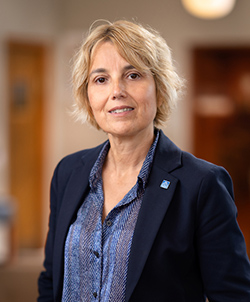May 12 marks an important annual milestone: the celebration of women in mathematics, honoring the legacy of Maryam Mirzakhani. It’s both a moment of recognition and a chance to reflect on the progress, and the gaps in building a more inclusive, supportive, and dynamic academic culture.
This year, I took part in a conference at KTH Royal Institute of Technology, one of many international scientific gatherings held around May 12. These are not just symbolic events, they are serious academic forums that also provide space for examining structural barriers and identifying ways forward.
Diversity in academia is not only a matter of fairness, it’s a driver of better research. Studies show that ethnically diverse teams produce more innovative, higher-impact work and are less susceptible to groupthink (Freeman & Huang, Nature, 2014). Inclusive environments lead to stronger science.
Mobility is key to sustaining that diversity. International collaboration and academic exchange bring in new ideas, approaches, and connections. But access to mobility remains uneven. According to the Swedish Foundation for International Cooperation in Research and Higher Education (STINT), internationally mobile researchers in Sweden are generally more productive and more cited, yet women are still significantly underrepresented among them (STINT, 2020).
Family responsibilities, financial constraints, and institutional structures often limit mobility for researchers of all genders, especially those with caregiving duties. To help address these barriers, the School of Engineering Sciences at KTH is launching a new sabbatical program that covers not only travel costs but also family-related expenses, such as school fees for children: SCI Sabbatical Program. While remote work has eased professional continuity for some partners, the logistics and costs of moving a family remain a major hurdle, particularly for early-career researchers.
Broader national data from the Swedish Higher Education Authority (UKÄ) reinforces this picture. Academic mobility in Sweden is growing, but still faces systemic bottlenecks related to funding, gender, and career stage (UKÄ, 2023).
If we want to unlock the full potential of academic talent, these are the friction points we must address.
The aim of initiatives like the KTH-SCI sabbatical program isn’t to tick a diversity box, it’s to build a more sustainable, equitable, and globally connected research environment. That’s the academic culture we should be working toward.


No comments yet. Be the first to comment!